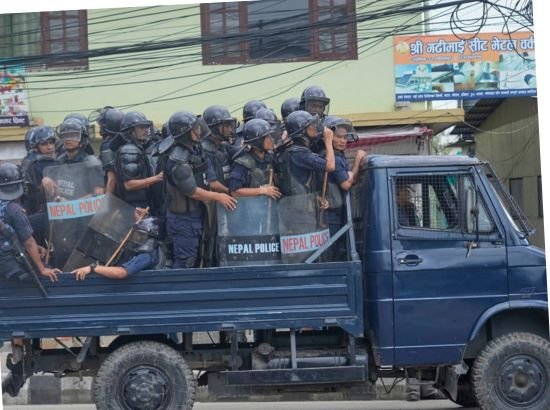
Nepal Crisis Deepens: Ministers’ Homes Torched, Five Resign as PM Oli Faces Mounting Pressure
Kathmandu – Nepal is spiraling deeper into political turmoil as violent protests continued for a second straight day, with demonstrators targeting ministers’ residences and even the Prime Minister’s official home. Despite a curfew imposed across Kathmandu and surrounding cities, unrest has not subsided.
On Tuesday, furious mobs set fire to several ministers’ homes and stormed political leaders’ properties. Among the houses attacked was that of Prithvi Subba Gurung, the Minister of Communications and IT, in Lalitpur. Deputy Prime Minister and Finance Minister Bishnu Paudel’s residence was also assaulted, while protesters vandalized the home of former Home Minister Ramesh Lekhak, who had resigned a day earlier. Even Nepal Rastra Bank Governor Bishwa Paudel’s house was not spared, as demonstrators hurled stones at the property.
The violence follows Monday’s deadly clashes in which 20 protesters were killed, allegedly due to police firing, further inflaming public anger. In the wake of the crisis, five ministers—including Home Minister Ramesh Lekhak and Agriculture Minister Ramnath Adhikari—have resigned. Those who stepped down have also appealed to Prime Minister K.P. Sharma Oli to take responsibility and resign from office.
Crowds have now advanced as far as the Prime Minister’s residence, engaging in vandalism and demanding his immediate departure. Unconfirmed reports are circulating in political circles suggesting that PM Oli may even consider leaving the country, though no official confirmation has been given.
Observers are drawing parallels with Bangladesh, where former Prime Minister Sheikh Hasina was forced to flee amid widespread protests. She is currently believed to be residing in India, while Nobel laureate Muhammad Yunus leads an interim government in Dhaka. Analysts note that, much like Bangladesh, Nepal could be heading toward a scenario where the existing government collapses under pressure, paving the way for an interim authority.
For nearly a year, anti-Oli movements have been simmering, fueled by allegations of corruption and questionable business deals involving Indonesia and Malaysia. The present unrest, sparked by the controversial social media ban and corruption charges, has now escalated into one of Nepal’s most severe political crises in recent years.
What makes this uprising distinctive is the overwhelming participation of Nepal’s younger generation, dubbed “Gen Z” protesters. Defying curfew orders, they have sustained the momentum of demonstrations, demanding systemic change and accountability at the highest levels of government.
With ministers resigning, houses set ablaze, and institutions under attack, Prime Minister Oli faces the toughest challenge of his political career. Whether he steps down voluntarily, as his critics demand, or tightens his grip through stronger security measures, remains to be seen.